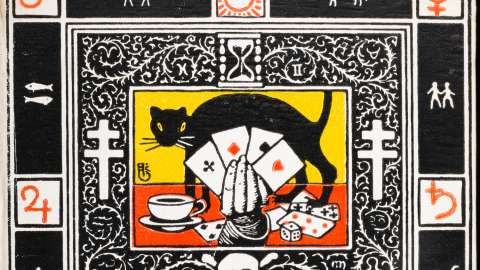Exeter University in the UK is now offering a Masters Degree in the occult and magic. The Guardian did an article on it which I would like to share:
If you’ve been getting into crystals, manifesting your dream board or exploring feminist readings of witchcraft, you can now take your hobby to the next level – with the UK’s first postgraduate degree in magic and the occult.
The University of Exeter is seeking to harness growing interest in the subjects with a course that will explore the history and impact of witchcraft and magic around the world on society and science.
The multidisciplinary degree, which starts in September 2024, will draw on history, literature, philosophy, archaeology, sociology, psychology, drama and religion to show the role of magic on the west and the east.
Prof Emily Selove, who leads the course, said: “A recent surge in interest in magic and the occult inside and outside academia lies at the heart of the most urgent questions of our society. Decolonisation, the exploration of alternative epistemologies, feminism, and anti-racism are at the core of this programme.”
She said this reversed a tendency in recent decades to “dismiss the study of magic and the occult”, with the idea that it is “no longer of importance to ‘modern people’”.
Citing rituals such as wearing jewellery considered to be lucky or representing a point of contact with a distant person or thing, touching wood, or not shaving to avoid jinxing the team on match day, Selove said “a superficial glance at our own beliefs and the beliefs of the people around shows us [that] magic is a part of our everyday life. Responsible scholars would do well to take this seriously”.
This is confirmed by the growth in the popularity of folklore, witchcraft, tarot and crystals, which has been understood as a reaction to the decline of organised religion. The 2022 census found a rise in the number of people identifying as pagans and wiccans in the UK, while shamanism was the fastest-growing religion.
Selove said the MA in magic and occult science would reexamine “the assumption that the west is the place of rationalism and science, while the rest of the world is a place of magic and superstition”, including how it underpins western culture, and how its relationship with the natural world can bring new perspectives to climate breakdown.
She said there was a “growing acknowledgment” in academia that texts dealing with magic or occult subjects have been “systematically neglected by scholarship” in medieval and early modern history, literature, and religion, as well as the history of science and philosophy.
Selove said there had been a lot of interest in the course since its launch, with the university receiving more than 100 inquiries.
The course will combine traditional western academic methodologies and more alternative approaches, with students able to complete their dissertation through a performance work.
It says it will equip students with skills including creative thinking, analytical thinking, curiosity and lifelong learning.
Students will have the option to take modules on dragons in western literature and art, the legend of King Arthur, palaeography, Islamic thought, archaeological theory and practice, the depiction of women in the middle ages, the book in medieval and early modern Europe, gender, society and culture in early modern Europe and the philosophy of psychedelics.
